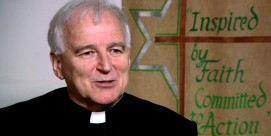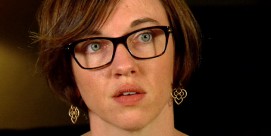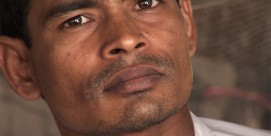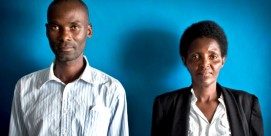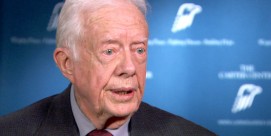Faith, Values and Foreign Policy
Excerpts from an interview with Anne-Marie Slaughter, dean of the Woodrow Wilson School at Princeton University and author of THE IDEA THAT IS AMERICA: KEEPING FAITH WITH OUR VALUES IN A DANGEROUS WORLD (Basic Books, 2007):
 I think the United States has to have a value-based foreign policy because of who we are, because of the way that civic values, the values that I call liberty and democracy and justice and equality and tolerance and humility and faith — those are a part of our DNA as a nation, and when we have tried to move to a foreign policy that was more old-style realpolitik, balance of power politics, the American people have not accepted that for very long. So I think a value-based foreign policy is essential to who we are as a nation. But then the question is what values, and what does that mean to have those values translated into a foreign policy?
I think the United States has to have a value-based foreign policy because of who we are, because of the way that civic values, the values that I call liberty and democracy and justice and equality and tolerance and humility and faith — those are a part of our DNA as a nation, and when we have tried to move to a foreign policy that was more old-style realpolitik, balance of power politics, the American people have not accepted that for very long. So I think a value-based foreign policy is essential to who we are as a nation. But then the question is what values, and what does that mean to have those values translated into a foreign policy?
From the very beginning we were not ever captured by one faith. We were a place that allowed multiple faiths to worship as they pleased side by so side, so to be consistent with that tradition, which is one of the things that forged us as a nation, and I think we have contributed hugely to the world with our notion of free exercise and of no state establishment of religion, to have a foreign policy that reflected that, it would be a foreign policy that made room for multiple faiths and did not try to impose the views of any one faith specifically on specific foreign policy decisions.
The question of foreign policy-making and the role of specific religious groups is a complicated one, but in my view religious groups, like any groups in our society, are part of our democracy, and their views do need to be heard. I remember well the [Catholic] bishops’ statement on disarmament during the Cold War, which was hugely important because it was giving moral voice to what a majority of Americans believed in a form that could then be directly taken account of by the government. So from my perspective we have to acknowledge those voices, interestingly, in exactly the way that we say to other societies that they have to acknowledge the voices of many different groups in their societies. The harder questions come when, again, it’s a question of the sense that one particular religious group or even indeed a segment of a particular religion have somehow captured the representation of their religion and also captured a particular branch of policy. That means we need to open that up, but the answer is not less faith-based groups, it’s more. It is hearing from more faiths, and hearing from non-faith-based groups at the same time.
All governments have a responsibility to protect their people from genocide, crimes against humanity, grave and systematic human rights abuses, and that if a nation manifestly fails in that responsibility then the international community has the right to intervene. It doesn’t have the duty to intervene. There will be cases in which, where intervention will make matters worse, or it’s impossible. But we should do everything we possibly can in those situations to work with other countries to actually come to the aid not of a government but of a people. We have to be able to do that in a way that actually helps resolve a problem where we don’t go in and leave. So, it’s a complicated situation, but I do think the rules of sovereignty are changing, and they’re changing in a people-focused direction. I also think that if we are going to have a value-based foreign policy, and we’re going to combat or to fight global terrorist networks we have to recognize that we need a rules-based policy, but those rules need updating. We have a set of rules that we developed after World War II. We updated in the 1970s. But we are now facing new threats, and I argue strongly for a law-based policy. But the law must accommodate changing circumstances, so I argue we need to reinterpret the Geneva Conventions. We may need to amend them. We need to do that with other nations, rather than ourselves declaring that we know how to detain someone or to interrogate someone.
I have honestly seen the role of faith in a different light. I have seen a connection between private belief and public engagement and the espousal of values quite differently, and I think I also have come to have a strong sense of being deeply patriotic and respecting those that are deeply patriotic, but at the same time understanding that it is not only possible to criticize your government but often desirable to criticize your government because you are holding your government to our own highest standards, and that is really the definition of patriotism, especially in a time of threat, so that going back to our values has led me to affirm, them but also to demand that they be honored in different ways.

